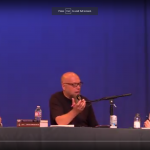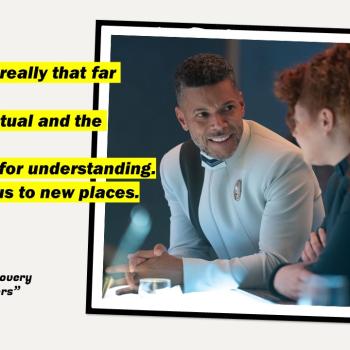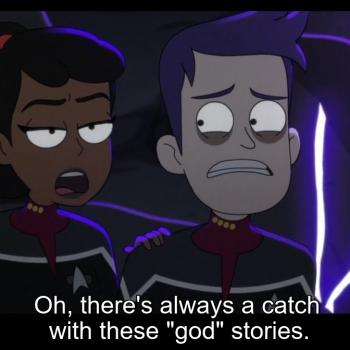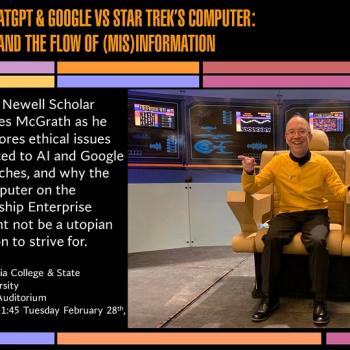The fourth episode of Star Trek: Discovery focuses on a number of points related to perceptions, stereotypes and assumptions, whether on the part of a Klingon who is concerned with purity and refuses to plunder the Shenzhou, or humans who assume that an oversized tardigrade is a monster capable of being weaponized.
We also see a Klingon praying to his messiah T’Kuvma.
And we get a mention of the Elon Musk in between the Wright Brothers and Zephram Cochrane.
We learn that Corvan 2 is a crucial source of dilithium, and the Discovery is the only ship that has a chance of reaching it, because of its spore drive.
Michael discovers that the tardigrade has some kind of symbiotic relationship with the spores, and may be able to tell them where to go – in essence, become their new navigator. But we soon learn that this work costs the tardigrade something – it suffers as a result of playing this role in the ship’s navigation and jumps.
The episode ends with Michael receiving the last will and testament of Capt. Georgiou, which includes a message (which assumes that Michael has her own command, saying that she is as proud of her as of her own daughter) and the captain’s telescope (which comes with the additional encouragement to continue exploring).
Discovery seems to be sticking closely to core elements of the ethos and outlook of Star Trek: challenging stereotypes. It is arguable that it is doing a better job than the Original Series did, at least as far as the role of women in leadership is concerned. Its Klingons are also, if nothing else, more interesting than those of the Original Series. The positive role of curiosity – and empathy from one trained to respond like a Vulcan with logic rather than emotion – over against simple war tactics is also in keeping with the emphases of all previous Star Trek.
And so I’m enjoying Star Trek: Discovery more with each episode. What about you?












